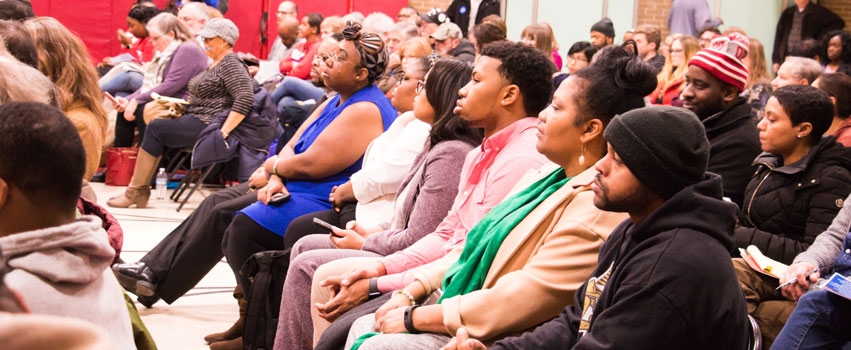From Challenge to Transformation
A community’s economic and human success depends on the resiliency of its people. When we are emotionally stronger, we are better prepared to turn challenging times into transformative experiences.
Preparing for Change
Are you a glass half-full or half-empty type of person? Our attitude toward change, pain and uncertainty starts long before any transformation takes place. We have to be mentally prepared. In order to transform during times of change, we first need to ensure we have processes and attitudes in place that allow us—personally, professionally, and as a community—to grow and become more resilient.
Perseverance and resiliency do not always come naturally, but they are skills you can hone over time. When we prioritize goals and follow our processes, it is easier to take small, manageable steps that allow us to grow even during challenging times. Some of the best self-help advice states that success is achievable when you “remain on the path you’ve chosen” or “stay on the ride.”
This level of endurance comes from trusting our processes to help us pivot when our path takes twists or turns. Being ready for constant change, both at home and in our businesses, allows us to adapt our processes when necessary to help our families and teams develop.
Building Resiliency
For many people in our community, being resilient is even more difficult because they do not have access to the basics such as affordable housing, food, mental and physical healthcare, or the credentials needed to maintain employment. This is why the Heart of Illinois United Way focuses on supporting education, financial stability and health programs at our partner agencies through an outcome-driven process.
Nonprofit organizations have had to persevere and pivot their work this year more than ever. Each year, the Heart of Illinois United Way’s investment in central Illinois’ health and human care programs are managed by 100 local volunteers who collectively represent more than 500 years of combined grant review expertise. For more than 15 years, our Community Assessment research has focused on the education, financial stability and health needs of the people in central Illinois. This research has been vital to improving our effectiveness in identifying, assessing and supporting key areas of social concern. Our data-driven funding process uses these findings to establish measurable outcomes that benchmark how well each funded program impacts the knowledge and behavior of the clients served—and if the program is financially viable.
As we work through today’s challenges, our Community Impact Fund invests in critical local needs that provide a solid foundation of services, no matter the situation. Using data-driven metrics, we ensure our network of health and human care services remains strong in times of crisis.
Embracing Challenges
We have a choice as individuals and as a community: to fight change or to be ready for it. When we mentally, physically and strategically embrace challenges, we can grow the most. It usually is not fun when it is happening, and it can be difficult to find the silver lining. But if we trust the processes we have in place within ourselves, our local businesses and nonprofits, we can collectively persevere and be in a powerful place of transformation for the years ahead. PM
